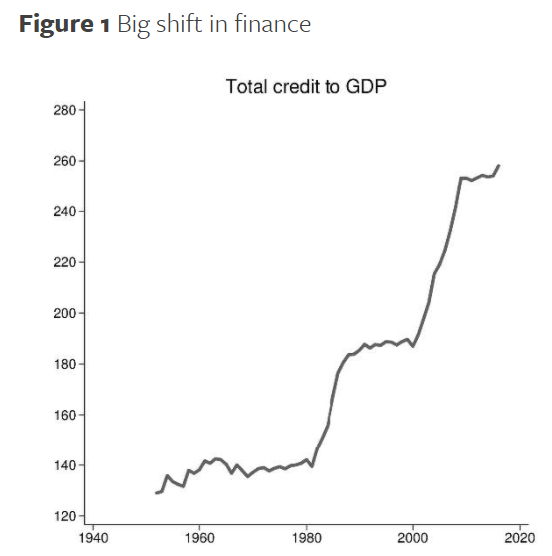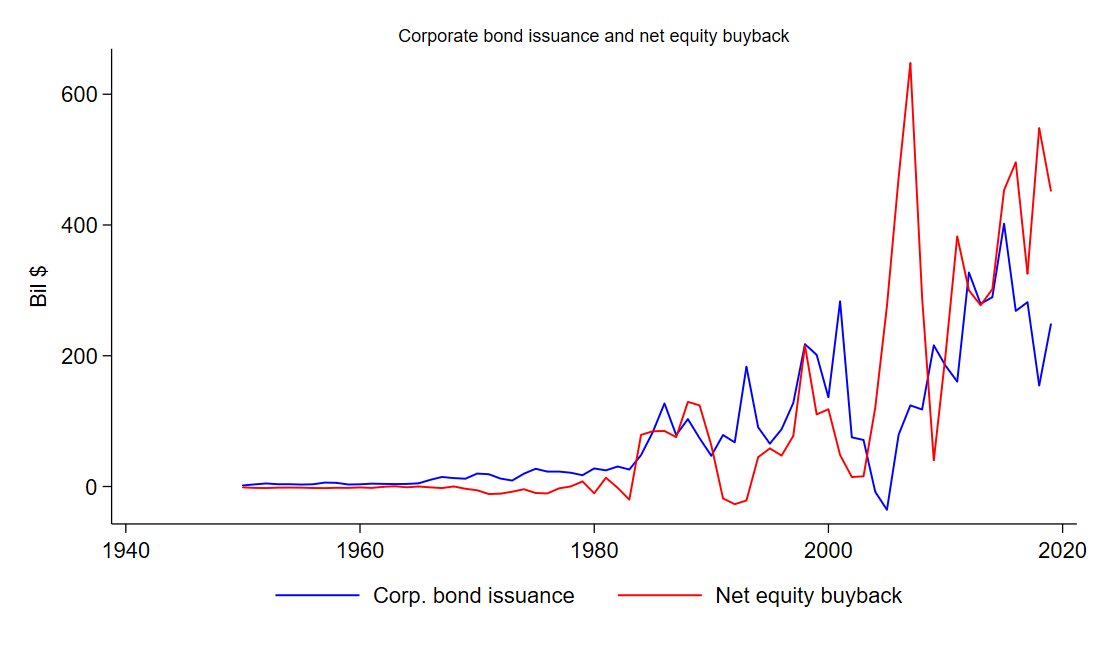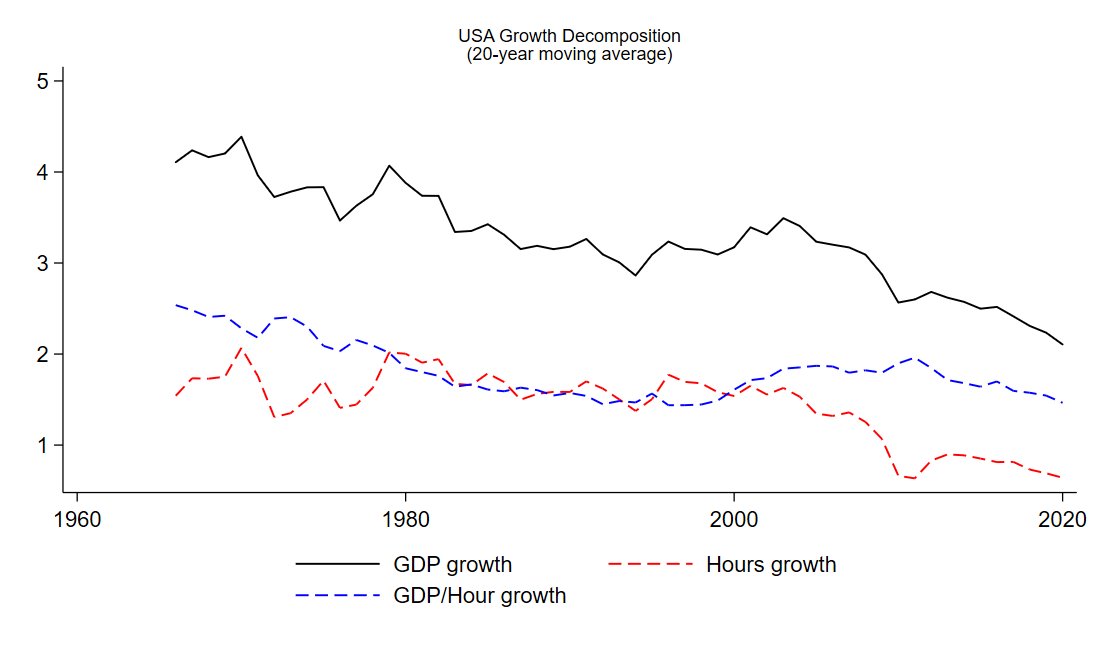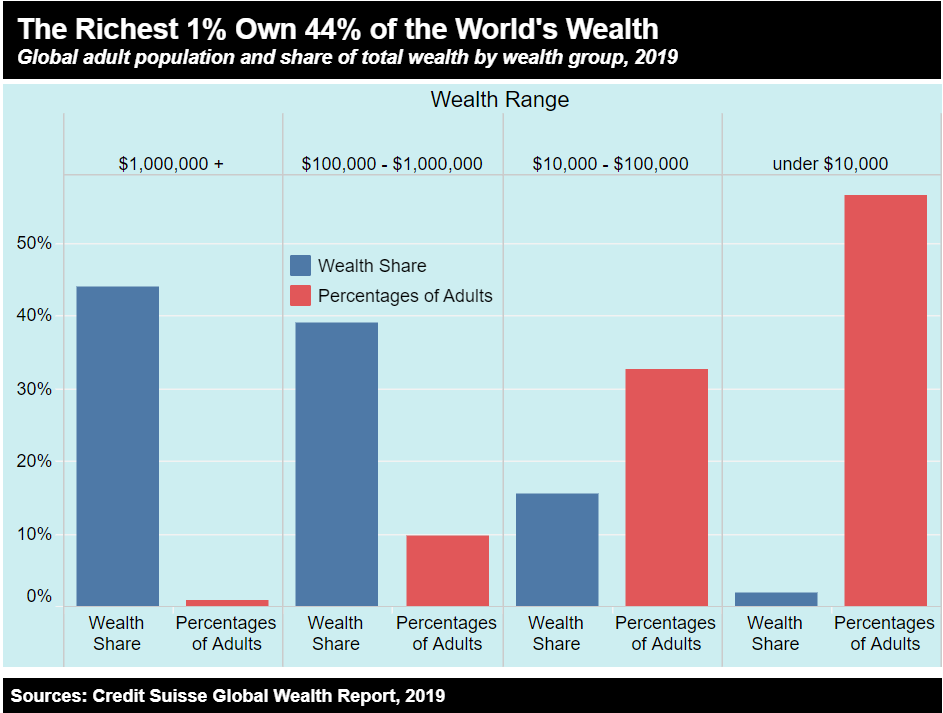
GameStop is an interesting story, but there is a bigger and much more serious question about financial markets
As someone who studies finance, I know finance has tremendous potential to benefit society
But there is something serious to worry in the trend since the 80s
As someone who studies finance, I know finance has tremendous potential to benefit society
But there is something serious to worry in the trend since the 80s
Let's start with the story we like to tell students in finance 101
"financial markets take money from savers and give it to entrepreneurs who invest it to make economic growth possible"
This is indeed a very important function of financial markets
However ....
"financial markets take money from savers and give it to entrepreneurs who invest it to make economic growth possible"
This is indeed a very important function of financial markets
However ....
Since the 80s financial market has increasingly been doing something quite different
The size of financial sector has almost *doubled* in terms of credit given out per $ of output
Yet, investment has not risen at all and in fact been trending down
The size of financial sector has almost *doubled* in terms of credit given out per $ of output
Yet, investment has not risen at all and in fact been trending down

So what is all this credit creation for?
As an example, let's looking at corporate credit, and in particular corporate bonds: these are $'s that large corporations borrow from financial markets
Surely this money must be used as finance 101 predicts?
As an example, let's looking at corporate credit, and in particular corporate bonds: these are $'s that large corporations borrow from financial markets
Surely this money must be used as finance 101 predicts?
Not really
While there's been a large increase in corporate bond issuance, on net its all gone back to shareholders via stock buybacks
In fact the red line here is *net* equity buy back - which means even after accounting for new equity issuance, buy backs dominate
While there's been a large increase in corporate bond issuance, on net its all gone back to shareholders via stock buybacks
In fact the red line here is *net* equity buy back - which means even after accounting for new equity issuance, buy backs dominate

The Bils of $ borrowed every year are used to buy back stock and not to make any real investment
Why go through the hassle of borrowing if you don't need the money? It helps to save on taxes
Why go through the hassle of borrowing if you don't need the money? It helps to save on taxes
There is a lot more that's going on here
For example, the big rise of finance since the 80's is closely related to the rise in inequality that has produced a "saving glut of the rich" (see paper)
GameStop is just a canary in the coal mine
scholar.harvard.edu/files/straub/f…
For example, the big rise of finance since the 80's is closely related to the rise in inequality that has produced a "saving glut of the rich" (see paper)
GameStop is just a canary in the coal mine
scholar.harvard.edu/files/straub/f…
• • •
Missing some Tweet in this thread? You can try to
force a refresh






